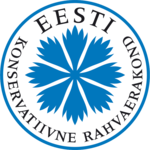A wave of right-wing populism has swept across Europe in recent months as the continent struggles with its biggest refugee crisis since the end of World War II.
Anti-migrant parties in countries from Hungary to Germany to Slovakia are experiencing a record surge in support.
Here are some of the key players in Europe’s populist movements:
IN POWER:
Viktor Orban’s conservative Fidesz party has seen soaring poll ratings at the expense of the far-right Jobbik, as he took an unapologetically hardline stance in the migrants crisis.
The Hungarian leader has sealed the country’s southern borders with razor wire and fences, refusing to take in a single migrant under a mandatory EU quota scheme. The right-winger has styled himself as the defender of Christian Europe against Muslim hordes.
POLAND
.svg/304px-Prawo_i_Sprawiedliwo%C5%9B%C4%87_(emblem).svg.png) The conservative Law and Justice (PiS) party came to power last October and is deeply opposed to taking in refugees under an EU quota system.
The conservative Law and Justice (PiS) party came to power last October and is deeply opposed to taking in refugees under an EU quota system.
Its leader Jaroslaw Kaczynsk had accused migrants of “bringing in all kinds of parasites which are not dangerous in their own countries, but which could prove dangerous for the local populations” in Europe.
ESTABLISHED:
AUSTRIA
The far-right Freedom Party — already the third-largest party in parliament — has topped opinion polls lately, with scores as high as 34 percent.
 The nationalist party, which made it into a coalition government under its late leader Joerg Haider in the early 2000s, rails against “asylum cheats”, organises demonstrations against planned centres for refugees and wants Austria’s borders sealed.
The nationalist party, which made it into a coalition government under its late leader Joerg Haider in the early 2000s, rails against “asylum cheats”, organises demonstrations against planned centres for refugees and wants Austria’s borders sealed.
DENMARK
It was behind a controversial measure passed in January allowing Denmark to seize valuables from refugees to pay for their stay.
FRANCE
 The far-right National Front (FN) topped the vote in regional polls on December 6, forcing traditional parties to band together to keep them out of power.
The far-right National Front (FN) topped the vote in regional polls on December 6, forcing traditional parties to band together to keep them out of power.
Its leader Marine Le Pen has said migration into Europe recalls the “barbarian invasions” of the fourth century.
Opinion polls consistently show that the FN leader would make it to the second round of presidential elections in 2017, regardless of her opponent.
GREECE
The neo-Nazi Golden Dawn captured seats in parliament in 2012 with 6.92 percent of the vote while Greece was in the throes of a sovereign debt crisis. It has orchestrated demonstrations against the opening of refugee shelters, but its popularity has not grown.
NETHERLANDS
The far-right Freedom Party has steadily grown since its establishment a decade ago, stoked by its leader Geert Wilders’ fiery anti-Islam and anti-European Union rhetoric.
.png) While he was the front-runner in political polls on the back of the migrant crisis, Wilders’ popularity has slumped lately ahead of an initial court appearance next week where he faces charges of inciting racial hatred.
While he was the front-runner in political polls on the back of the migrant crisis, Wilders’ popularity has slumped lately ahead of an initial court appearance next week where he faces charges of inciting racial hatred.
SWEDEN
The far-right Sweden Democrats were on the fringes until 2014, when they burst into parliament with 12.9 percent of the vote, becoming the country’s third biggest political force. Opinion polls show them gaining popularity since summer 2015.
NEWCOMERS:
CZECH REPUBLIC
 Anti-foreigner party The Dawn, captured eight seats in parliament in 2013. Czech President Milos Zeman, known for his anti-migrant rhetoric, sparked an uproar last year when he appeared on the same stage with Dawn officials.
Anti-foreigner party The Dawn, captured eight seats in parliament in 2013. Czech President Milos Zeman, known for his anti-migrant rhetoric, sparked an uproar last year when he appeared on the same stage with Dawn officials.
ESTONIA
The far-right Conservative People’s Party of Estonia (EKRE) founded in 2012 entered parliament last year with seven seats. It holds torchlight night parades through Tallinn and one of its MPs has openly praised fascism.
GERMANY
Its popularity has risen as misgivings grow in Germany over a record influx of refugees. It is eyeing its first seats in three regional parliaments in Sunday’s state elections.
Far-right nationalist party LS-Nase Slovensko made spectacular gains in elections last weekend.
The head of the LS-Nase Slovensko (Our Slovakia) party, 38-year-old Marian Kotleba, wants to impose order on the parasites in (Roma) settlements,” to protect residents from “gypsy terror”.



